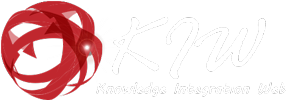This two-day programme is aimed at providing you with the essential skills, knowledge and techniques to deal with internal and external stakeholders and be an excellent PA. Delegates will learn how to cope with situations with a better understanding of their roles and responsibilities in delivering professional service. The programme will be informational, inspirational and practical to ensure that delegates go back to their work highly motivated and skilled to make themselves and the organisation proud.
The Executive Secretaries and PA’s Workshop 2026
today March 2, 2026my_locationRadisson Blu Gautrain Hote
D H M S

Location
Program
08:25 remove 08:30
keyboard_arrow_downWelcome Speech
08:30 remove 09:15
keyboard_arrow_down
Intelligent interpersonal skills for professionals PA’s
At the end of this module delegates should be able to: • Know the definition of communication • Explain how to identify the needs, wants and expectations of others • Be aware of the barriers to communication • Know what to do to improve their ability to communicate and to “read” people • Explain the importance of listening • How listening help solve interpersonal problems • Deal with emotions in an adult manner • Understanding when and how to use your influencing skills to effectively support your role • Realising that everyone has the ability to have influence and impact • Understanding the fundamental difference between personal influence and authority • Using your knowledge to apply the correct and most appropriate communication skills in every situation
09:15 remove 10:00
keyboard_arrow_down
Building interpersonal relationships
At the end of this module, delegates should be able to: • Identify the importance of good interpersonal relationships in business • Apply the concept of social styles to achieve a deeper understanding of where they and these people have a style match or a style mismatch • Assess their communication style in order to understand their interaction style • Review ways of becoming more versatile and “shifting style” with people to achieve harmonious working relationships • Link social styles to a better understanding of team members reactions to pressures • Analyse your team: its level of integration, role allocation and synergy • Check your own and your team’s degree of adult positioning • Outline an overall strategy for solving problems with teams and managers • Define the concept of courtesy • Differentiate between truly courteous and discourteous people • Define a “culture of courtesy” in an organisation and rate your own organisation against these criteria • Discuss the role of systems in courtesy and review your systems • Describe the difference between child behaviour, parent behaviour and adult behaviour in the business world (transactional analysis) • Link adult positioning to interpersonal relationships • Review their own professionalism • Formulate personal and career objectives varying from short term to long term
10:00 remove 10:30
keyboard_arrow_down
Coffee/ Tea Break
10:30 remove 11:15
keyboard_arrow_down
Social media and public relations
At the end of this module, delegates should be able to: • Review the role of social media in the public relations arena • List the major tools of public relations in social media • Review their own role in public relations and promoting the organisation • Understand the importance of the “clean” social media in public relations • Know how to avoid embarrassing incidents through well-defined customer processes • Create social media policies that will avoid misunderstandings about protocol • Learning from others’ mistakes • How to handle international protocol • The role of protocol officers • Build a strong relationship with media by understanding their role in your organisational messaging. • Learn how to manage a crisis with social media • Learn about pro-active messaging and communications
11:15 remove 12:00
keyboard_arrow_down
The professional Executive assistant and PA
At the end of this module delegates should be able to: • Understand your manager is your most important customer • Deal with emotions in an adult manner • List steps to improve interpersonal relationships in teams • Explain how to identify the needs, wants and expectations of team members • Be aware of the barriers to communication • Know what to do to improve their ability to communicate and to “read” people • Understand courteous communication in their teams • Explain the principles of etiquette and courtesy in business • Review their own role in the team
12:00 remove 13:00
keyboard_arrow_down
Networking Lunch Break
13:00 remove 15:30
keyboard_arrow_down
Working in the Executive Office
It is important to understand the vision of the organisation and the role of your Executive’s Office as a front to internal and external stakeholders • Obtaining specific instructions • Filing manually and electronically • Digital dictation • Taking initiative • Taking responsibility • Organising Controlling and ensuring that events occur in conformity with plans • Welcoming important guests • Identifying important non-verbal gestures • Representing your superiors
08:25 remove 08:30
keyboard_arrow_downWelcome Speech
08:30 remove 09:15
keyboard_arrow_down
Workload management, organising and time management
At the end of this module delegates should be able to: • Describe organising as a core responsibility of office administrators • Super-efficient planning and organising techniques to keep on top of everything • Describe how to prioritise when they are over-burdened with work • Perform a “time robber” analysis • Determine their procrastination quotient • List ways of dealing with interruptions • Describe how saving a few minutes can save a lot time and effort • Identify and review the basic systems affecting their roles in their organisation, assessing them for effectiveness and efficiency • Highlight some of the consequences for their department if information is not managed properly • Understand the importance of dealing with confidential documents and issues • Review their paper processing systems to encourage paper-free offices • Describe the importance of optimising technology e.g. internet and e-mail • Describe the importance of maintaining a diary and to follow up on their plans • Understand how a tidy office is a sign of an organised office administrator
09:15 remove 10:00
keyboard_arrow_down
Meetings and minutes made easy
Meetings and minutes made easy • Identify the objectives of meetings • List and describe different types of meetings • List the duties of a Meeting Secretary, the Chairman and other meeting officials • Outline basic meeting procedure • Explain the objectives of giving notice of a meeting, write such a notice and outline guidelines for distributing notices of meetings • Explain the objectives of an agenda, write a skeleton agenda and give guidelines for compiling and distributing effective agendas • Understand the protocol with motions, amendments, voting etc. • Describe various types of minutes and give guidelines for effective minute taking • Look at good and poor examples of minutes • Understand the correct format and procedure of minute taking • Learn how to effectively take notes using short methods • Understand how to formulate abbreviations and speedwriting • Understand that minute taking starts even before the meeting starts • Improve listening skills that will ensure better note taking • Understand the method of taking minutes effectively without writing down each word (except when required) • Learn how to summarise and note only important details down • Perform numerous practical exercises in note taking • Explain the meaning of core standard meetings terminology
10:00 remove 10:30
keyboard_arrow_down
Coffee/ Tea Break
10:30 remove 11:15
keyboard_arrow_down
Maintaining Service Excellence
Maintaining Service Excellence After attending this module delegates will be able to: • Understand the importance of follow-up on customer queries and complaints • Recognise best practices and useful tools in providing superior customer service • Maintain courtesy throughout customer contact • Keeping responsibility and ownership of the telephone call • Recognise the warning signs of potentially confrontational situations • Demonstrate how to deal with difficult customers • Understand the importance of being solution orientated • Understand the importance of telephone communication in the modern society • Demonstrate how to take an incoming call at the front line or on an extension • Explain best practices in telephone communication and etiquette • Describe how to deal with both incoming and outbound calls and how to take messages • List guidelines for good telephone use and telephone etiquette • Keeping responsibility and ownership of the telephone call • Recognise the warning signs of potentially confrontational situations • Demonstrate how to deal with difficult customers • Understand the importance of being solution orientated • Understand the importance of telephone communication in the modern society • Explain best practices in telephone communication • Describe how to deal with both incoming and outbound calls and how to take messages • List guidelines for good telephone use and telephone etiquette
11:15 remove 12:00
keyboard_arrow_down
Essential Business Communication Skills
Essential Business Communication Skills • Professional verbal communication • Understanding how your speaking manner makes a difference • Body language in the business world • Non-verbal communication: Making sure your body language is conveying the message you want when dealing with important people • Written correspondence and netiquette • E-mail etiquette – what’s hot and what’s not • Utilising professional business writing techniques when writing emails, letters and faxes • Learn how to decide and organize media pooling or open access
12:00 remove 13:00
keyboard_arrow_down
Networking Lunch Break
13:00 remove 15:30
keyboard_arrow_down
Building Relationships and Managing Conflict
Building Relationships and Managing Conflict • Discover the tools world-class leaders use to solve problems with critical thinking. • Understand the communication principles of the Johari window • Influence others to take decisive action for excellent results: • Managing Difficult People • Understanding Guest Expectations • Persuasion Techniques • Recovering from Mistakes • Introduce the foundation of world-class excellence • Demonstrate how to persuade/influence others • Differentiate between knowing about your guests and truly understanding them • Learn how to deal effectively with difficult people • Apply strategic problem solving and critical thinking • Understand effective service recovery
Details
| Begin | March 2, 2026 H 08:00 |
|---|---|
| End | March 3, 2026 H 15:30 |
| Location | Radisson Blu Gautrain Hote |
| Address | Radisson Blu Gautrain Hotel, Sandton Johannesburg |
| Phone | +27 (11) 286 1000 |
-
Book event
Upcoming event
today 02 Mar 2026
labelConference my_locationSouth Africa
The Executive Secretaries and PA’s Workshop 2026
Related events


today 27 Nov 2024
labelConference my_locationSouth Africa
HR Tech + L&D Innovation Summit 2024

today 19 Feb 2025
labelConference my_locationSouth Africa
Advanced Information Security Symposium 2025
Copyright 2025. Knowledge Integration Web. Developed by SSR Designs





